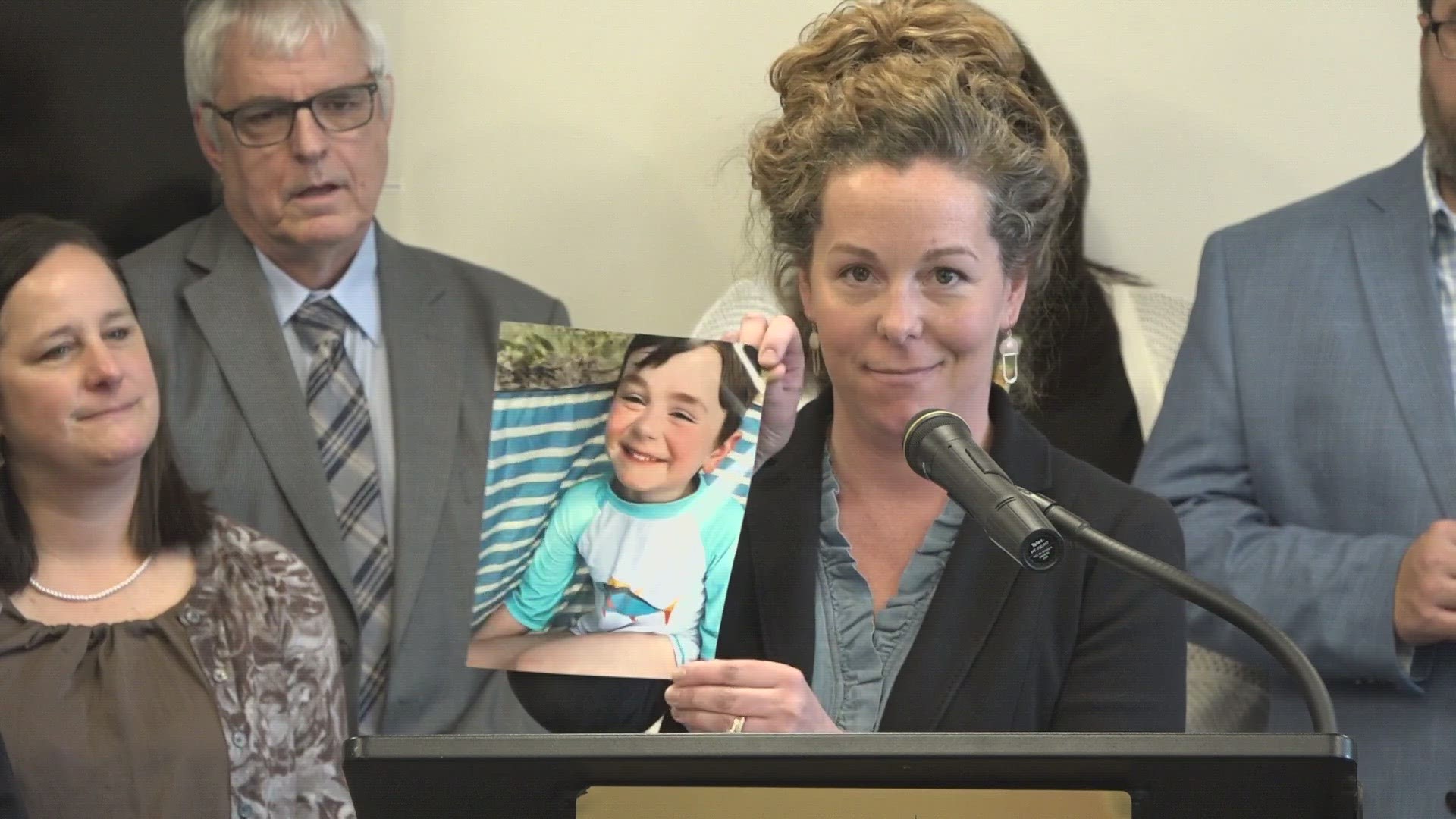AUGUSTA, Maine — In Maine, the need for child care is high, and when it comes to caring for children with special needs, finding appropriate care can be even harder.
That's why a group of providers and state lawmakers came together in Augusta on Thursday to introduce a bill to provide equitable funding to programs for kids with disabilities.
Currently, there are 24 special education preschools in Maine, and every one of them has a waitlist.
However, a lack of funding could lead to these types of preschools closing this year. Many families rely on these programs to provide the special care their children need.
B.L. Lippert spoke Thursday about the impact that a special education preschool had on his son.
"When he first started there at age three, he didn't respond to his name, didn't know how to use utensils, he really had no life skills, but they worked with him tirelessly and patiently, and now he is able to function really well in his public school third-grade classroom," Lippert said.
The bill that lawmakers are proposing would help providers establish and provide payments of a daily rate for their education services.
The schools would be reimbursed the same way K-12 programs are, and it would be in place for the next school year.
"Any kid that's denied education over some funding is an injustice," Lippert said.
State representatives gathered to clarify the requirements for payments of tuition for children with disabilities by the Child Development Services, citing the burden that families and communities would face if programs were to go away.
“These providers who are providing these services because the state reimburse is so low, those providers have a waitlist so they are shrinking and closing their program, so that is what we are trying to avoid here, programs shrinking and going away," Rep. Drew Gattine said.
Special education preschools, like the one Amber Gale's son, Henry, attended, helped him and his family feel at home.
“He would not have autonomy, he would not be able to say what he wants, when he wants, to whoever he wants without the help from his school over the last two years," Gale said.
"When you have a child who is struggling, you're doing everything that you can in your home, and it is critical you have your child attend a program where they feel safe and the parent feels safe," Rachel Bousquet, executive director for KidsPeace, said.
After the hearing, committee members will discuss the bill in the next few weeks before it goes to the House for votes.
Those who were present at the hearing believed that sharing their voice was the most important first step.

